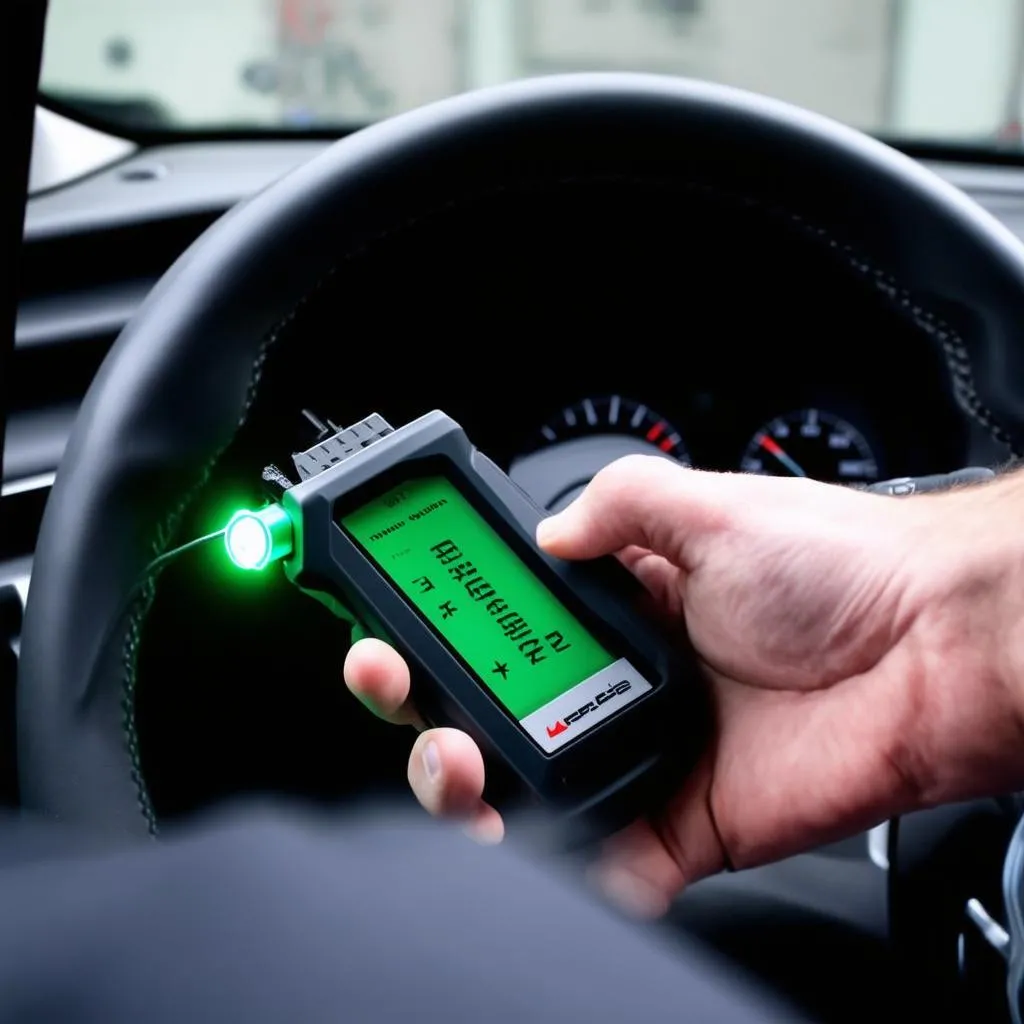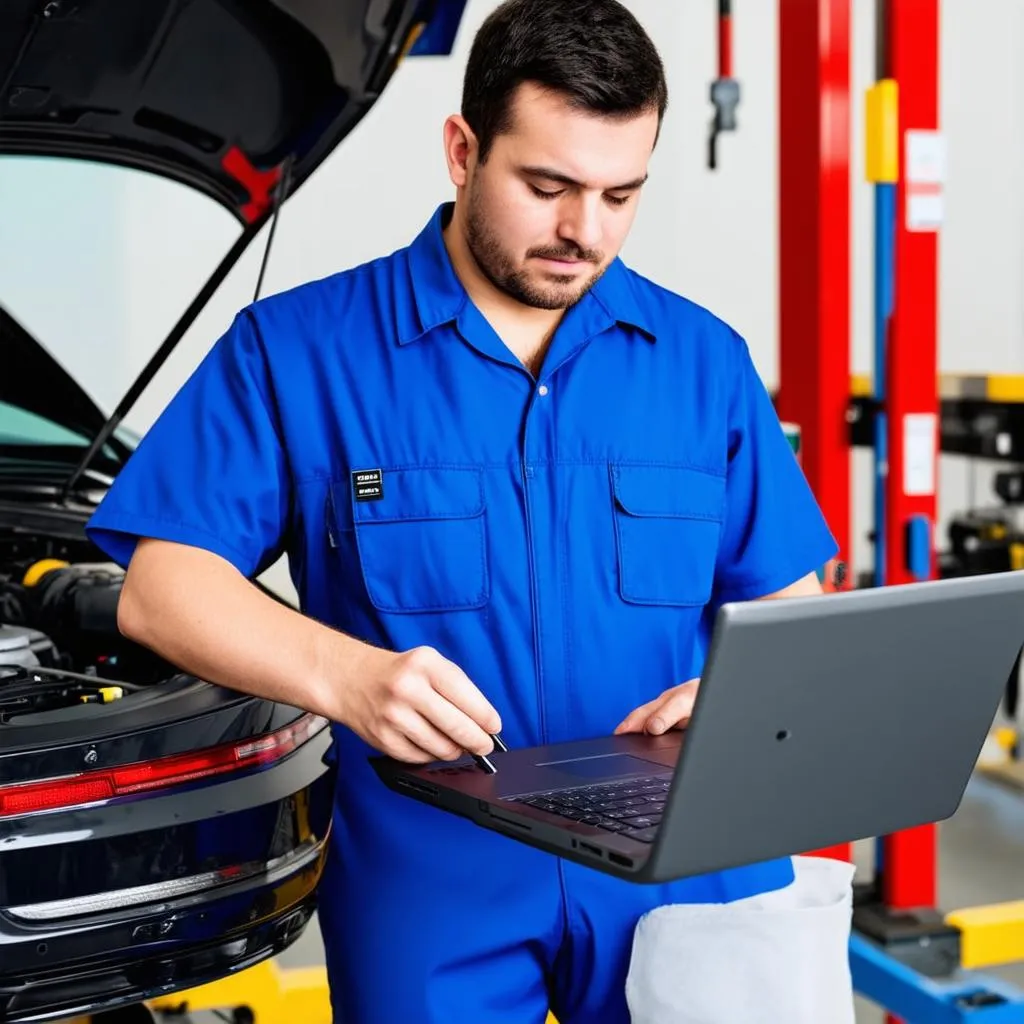Ever stared at your dashboard after starting your car, wondering what all those blinking lights mean? Or perhaps you’ve heard whispers about “OBD readiness” at the mechanic’s shop but were too afraid to ask what it actually meant? Don’t worry, you’re not alone! “What Is Obd Readiness” is a question that pops up more often than you’d think, and understanding it can save you time, money, and even a headache or two down the road.
Deciphering the Jargon: What Does OBD Readiness Even Mean?
Imagine your car’s emissions system like a well-oiled machine (pun intended!). Each part, from the catalytic converter to the oxygen sensors, plays a crucial role in ensuring your car runs clean and efficiently. Now, enter the “On-Board Diagnostics” system, or OBD for short. This clever system acts like your car’s internal doctor, constantly monitoring these components for any signs of trouble.
But here’s the catch: the OBD system doesn’t just flag problems; it also needs to confirm that all the emissions-related components are present, connected, and functioning correctly. This confirmation process is what we call “OBD readiness.”
Think of it this way: You wouldn’t want to run a marathon without making sure your shoes are tied and your muscles are warmed up, right? Similarly, your car’s OBD system wants to ensure everything is in tip-top shape before giving the green light.
Why Should You Care About OBD Readiness?
1. Passing Emissions Tests: In many states, passing an emissions test is mandatory for vehicle registration. A “not ready” status on your OBD system will likely result in a failed test, leading to the hassle of repairs and retesting.
2. Early Problem Detection: OBD readiness monitors can often detect minor issues before they escalate into costly repairs. Think of it as preventative healthcare for your car!
3. Ensuring Optimal Performance: A fully “ready” OBD system indicates your car’s emissions system is working as intended, leading to better fuel efficiency and reduced environmental impact.
Delving Deeper: What Affects OBD Readiness?
Several factors can influence your car’s OBD readiness status:
1. Driving Habits: Short trips or infrequent driving might not allow enough time for the OBD system to complete its checks.
2. Battery Disconnections: Disconnecting your car battery can sometimes reset the OBD system, requiring it to re-run its readiness checks.
3. Faulty Components: A malfunctioning sensor or a failing catalytic converter can trigger a “not ready” status.
4. Aftermarket Modifications: Certain modifications to your car’s exhaust system might interfere with the OBD system’s monitoring capabilities.
Troubleshooting OBD Readiness Issues
If you suspect your car might not be OBD ready, don’t panic! Here are a few things you can do:
1. Check Engine Light: A glowing check engine light often (but not always) indicates an OBD readiness issue.
2. OBD-II Scanner: Investing in an OBD-II scanner (like the ones we discussed in our article on Advance Auto OBD-II scanners) can provide detailed information about your car’s OBD system, including its readiness status.
3. Consult a Mechanic: For persistent issues, it’s always best to consult a qualified mechanic. They have the tools and expertise to diagnose and address any underlying problems.
The Spiritual Side of Cars
Now, you might be thinking, “What does spirituality have to do with cars?” Well, in many cultures, cars are seen as more than just machines; they represent freedom, individuality, and even a sense of adventure.
For instance, some believe that a clean and well-maintained car attracts positive energy and good luck on the road. Others see the smooth functioning of a car’s engine as a reflection of their own inner balance and harmony.
While these beliefs might seem esoteric, they highlight the deep connection we often forge with our vehicles. Just as we care for our physical and mental well-being, ensuring our car’s “health” through OBD readiness checks can be seen as an extension of that same care and attention.
FAQs about OBD Readiness
1. How long does it take for a car to become OBD ready?
This varies depending on the car and driving conditions, but it generally takes a few days to a week of regular driving.
2. Can I drive my car if it’s not OBD ready?
While you might not experience any immediate driving issues, it’s best to address OBD readiness problems promptly to avoid potential complications.
3. Will resetting my car’s ECU fix OBD readiness issues?
Resetting the Engine Control Unit (ECU) might temporarily clear the “not ready” status, but it won’t address the underlying problem.
4. Does my car’s age affect OBD readiness?
OBD-II systems became mandatory for all cars manufactured in the US after 1996. Older cars might have different emissions systems and readiness requirements.
 OBD Scanner Connected to Car
OBD Scanner Connected to Car
Beyond OBD Readiness: Exploring Your Car’s Inner Workings
OBD readiness is just one piece of the puzzle when it comes to understanding your car’s complex systems. If you’re interested in learning more about car diagnostics, check out our articles on:
- 2005 Chevrolet Malibu Classic 2.2 OBD Location: Link
- Car Mechanic Simulator: What Does an OBD Scanner Do?: Link
- Best OBD-II Software Mac: Link
- 2010 Nissan Versa OBD Port Location: Link
Need Help with Your Car’s Diagnostics? We’re Here for You!
Feeling overwhelmed by all the technical jargon? Don’t hesitate to reach out to our team of automotive experts on WhatsApp at +84767531508. We offer 24/7 support for all your diagnostic tool needs, ensuring your car stays in tip-top shape.
 Car Mechanic Working on Laptop
Car Mechanic Working on Laptop
Understanding your car’s OBD readiness is crucial for both your wallet and the environment. By staying informed and addressing any potential issues proactively, you can enjoy a smoother, cleaner, and more enjoyable driving experience.